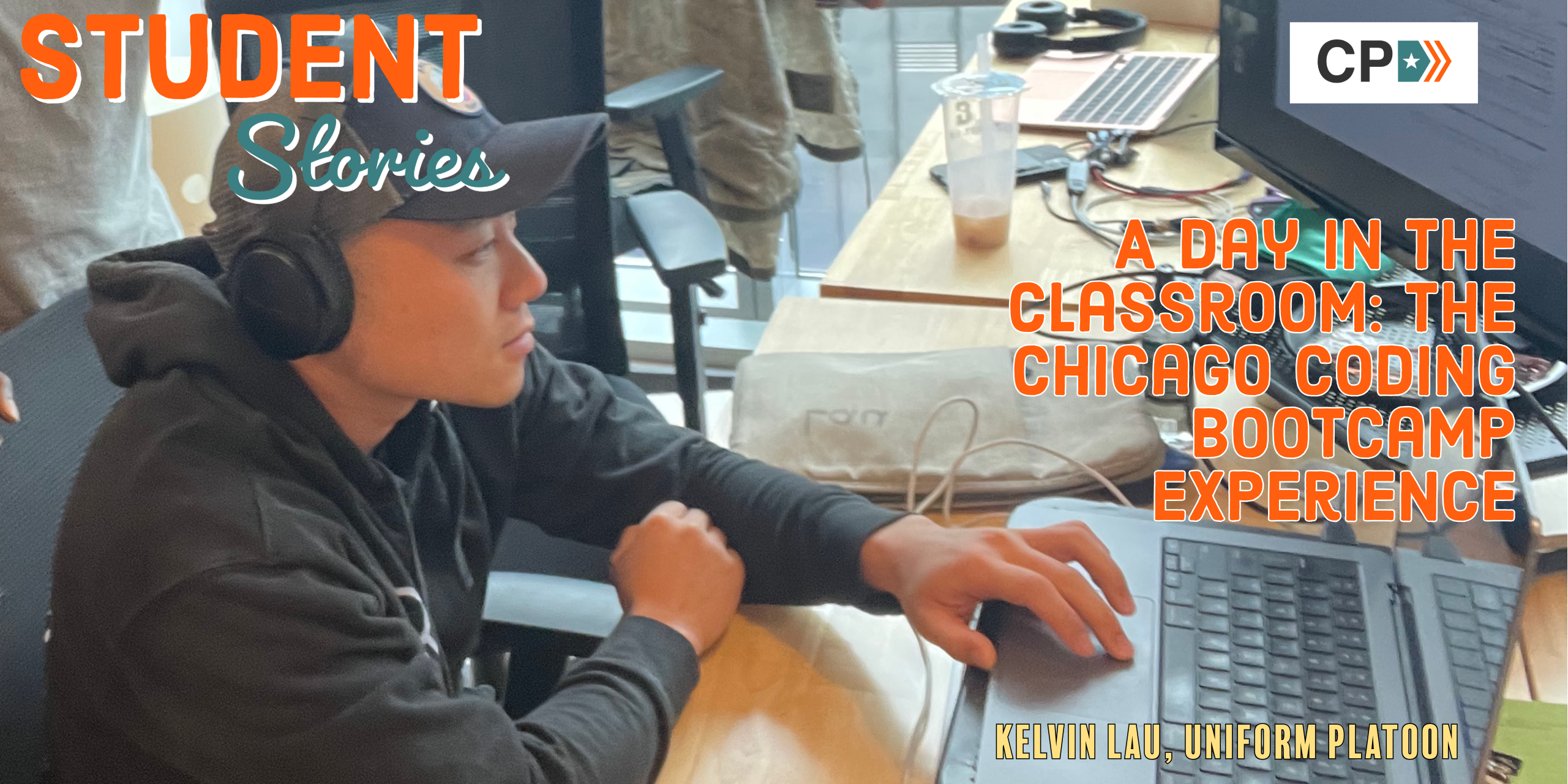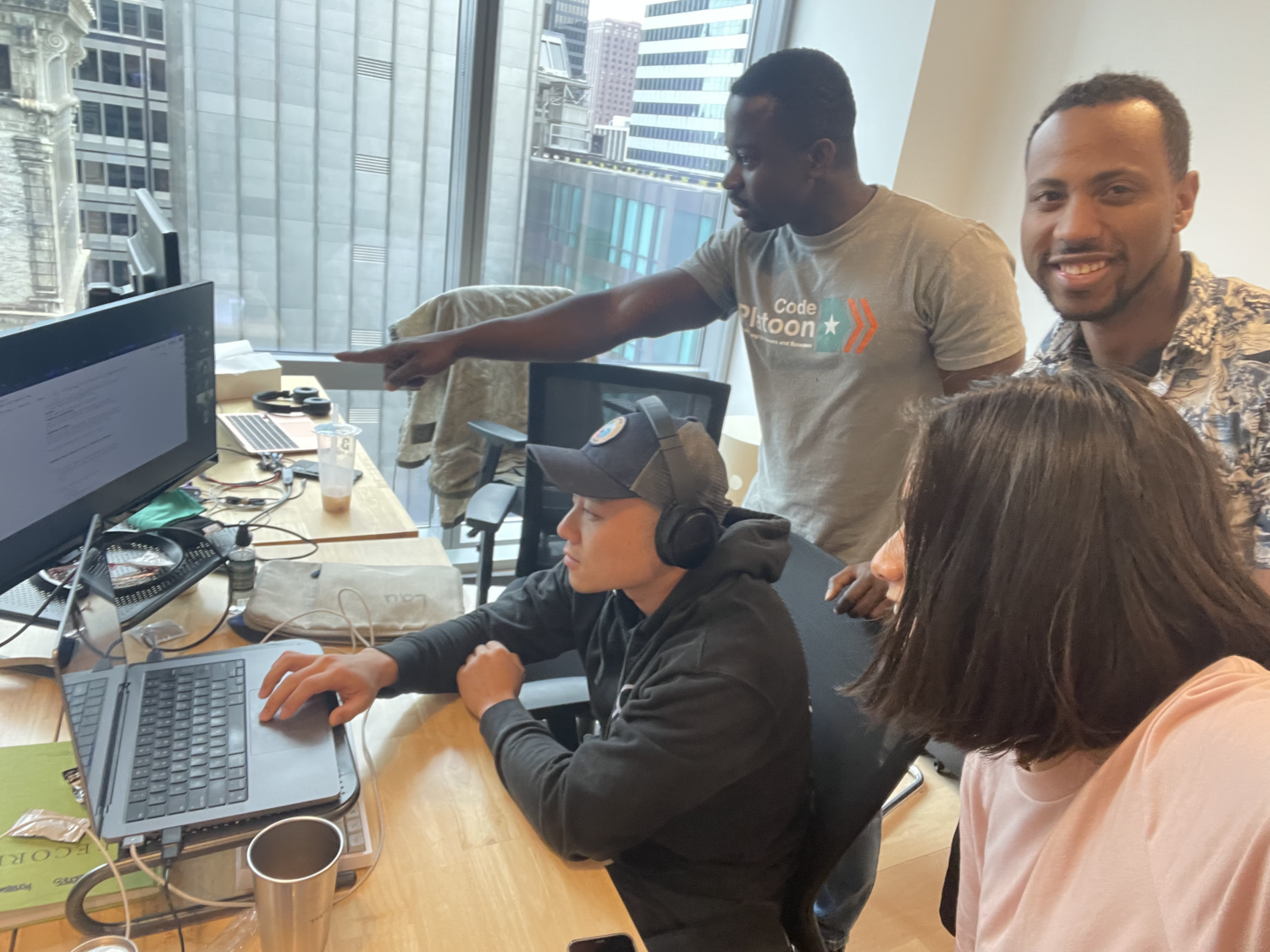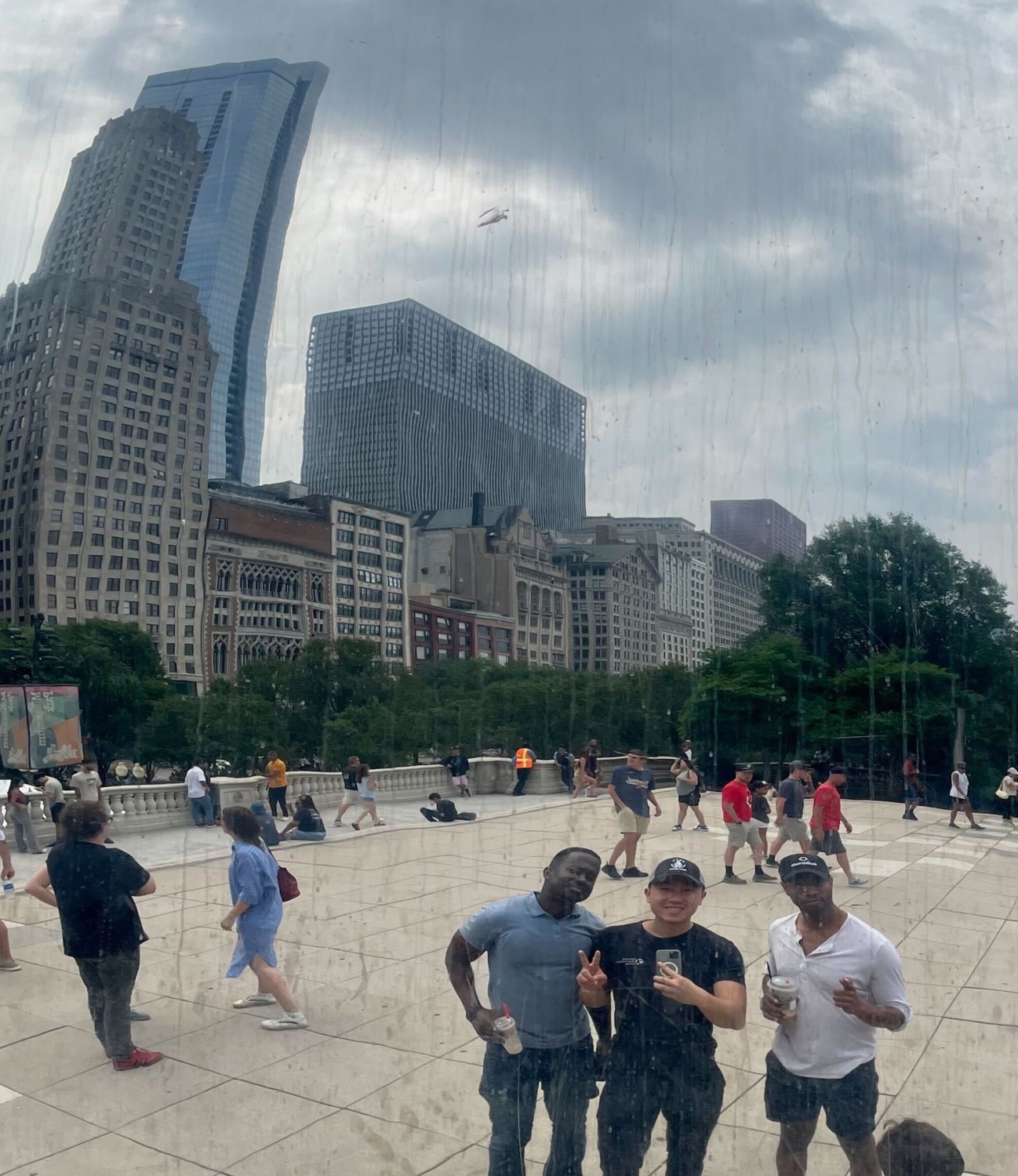
TLDR: After eight years in the Air National Guard, Kelvin Lau moved from California to Chicago to launch a career in software engineering at Code Platoon’s Full-stack Immersive Bootcamp. From debugging with classmates and learning from industry pros to navigating interviews and front-end projects, Kelvin’s story offers a real look at the daily life of a Veteran in Code Platoon’s in-person classroom—and how it’s preparing him for success in tech.
From Military Service to Mornings in the Classroom
At 7:30 a.m., Kelvin Lau is already on the move, catching his bus into the Chicago Loop. It’s a new routine for the eight-year Air National Guardsman, who recently left California for a new mission: becoming a software engineer through Code Platoon's Full-stack Software Engineering program.
“I was surrounded by programming my whole life,” Kelvin says. “I’ve always found software engineering enticing, but it didn’t pan out with my time in the military.”
Now, he’s all in—choosing a fast-paced, hands-on path that helps Veterans and military spouses launch careers in tech.
Kelvin usually arrives by 8:00 a.m., sometimes early enough to use the gym. On this particular morning, he grabs coffee with a classmate to talk through debugging code, a common conversation in Code Platoon’s collaborative learning environment.
“I had some exposure to coding from my professional experience before Code Platoon. I use that experience to help my friends out. Walking through other people’s code helps me learn, too,” he says.

Real-World Tech Skills from Day One
Class starts at 8:30 a.m. sharp. Students—both in-person and remote—begin with interview practice, focusing on behavioral questions. For many Code Platoon students, it's their first time prepping for the civilian job search, and this practice is a crucial part of transitioning from military life to the tech workforce.
“Learning to translate my military experience into something tech employers can understand and connect with has been eye-opening,” Kelvin says.
Later that morning, security architects from Motorola Solutions lead a guest workshop on web security. Students learn how to use Burp Suite to test their applications. In the last few weeks, he’s also delved into workshops on relational databases, GitHub version control, and AWS deployment.
“I think Code Platoon’s curriculum goes deeper than other coding bootcamps,” Kelvin says. “Last week, we had a whole day on Agile project management. These workshops immerse us in how software engineers think and let us network with the industry pros leading them.”
After lunch, Kelvin and his classmates dig into their group projects, which they’ll present before graduation. These collaborative projects reflect real-world tech workflows, and students get the chance to specialize in their interests.
“Since everyone is here today, we’ll help each other on our projects. I have a knack for front-end development, so that’s my contribution to our web app,” Kelvin says. “The remote students also work together in Zoom breakout rooms, but I prefer the in-person collaboration here.”
Using the GI Bill for Coding Bootcamp
Kelvin had considered using his GI Bill® to pursue a computer science degree. But Code Platoon’s practical, fast-track training gave him a chance to gain skills now and save his benefits for later.
“The other reason I chose Code Platoon was to be part of the exclusively military Coding Bootcamp community. The shared experience here is comforting,” he says. “Even most of the instructors are Veterans themselves.”
Planning for the Future
When he’s not coding, Kelvin is exploring his new city.
“I haven’t seen the winter yet, but I love Chicago so far,” he says. “The cost of living is much lower than in the Bay Area, but there’s still plenty to do. It's so much fun exploring the city with my new friends on the weekends. I want to stay here after I graduate.”
But Kelvin's future as part of Chicago's tech community will have to wait a bit. Just as he and his cohort prepare to graduate, Kelvin gets orders to deploy. Despite this setback, he won’t give up on his new dream of entering Chicago’s tech sector:
“I’ll keep building projects and improving my software engineering portfolio during deployment. I’ll try to get in the door with some companies in Chicago while that’s happening,” he says.
“Oh, and I’ll need to buy my first winter coat before I come back.”
Success as a Software Developer
Two years later, Kelvin is back from deployment, retired from the Air National Guard, and thriving in his new tech role as an Associate Software Developer at Visa.
Kelvin’s journey shows what’s possible when you combine military experience, determination, and a coding bootcamp designed with Servicemembers like him in mind.






